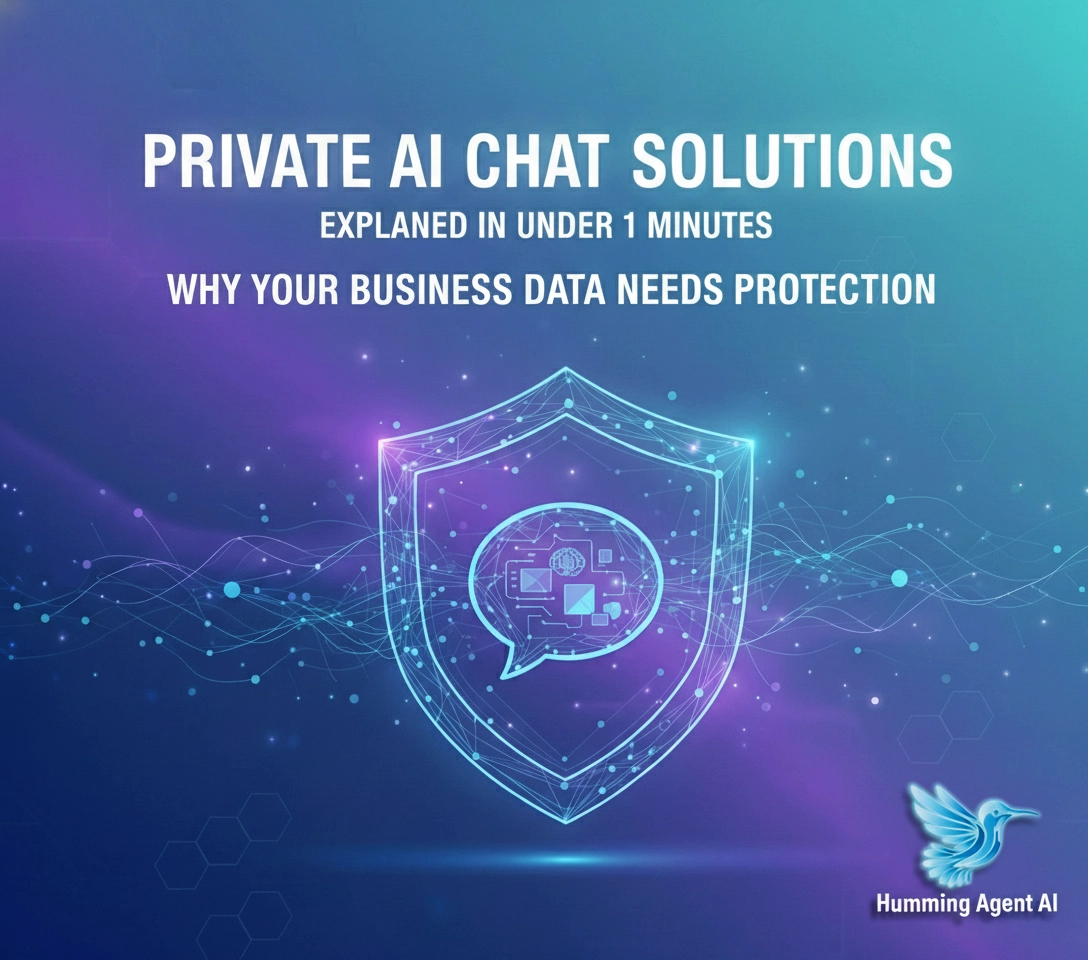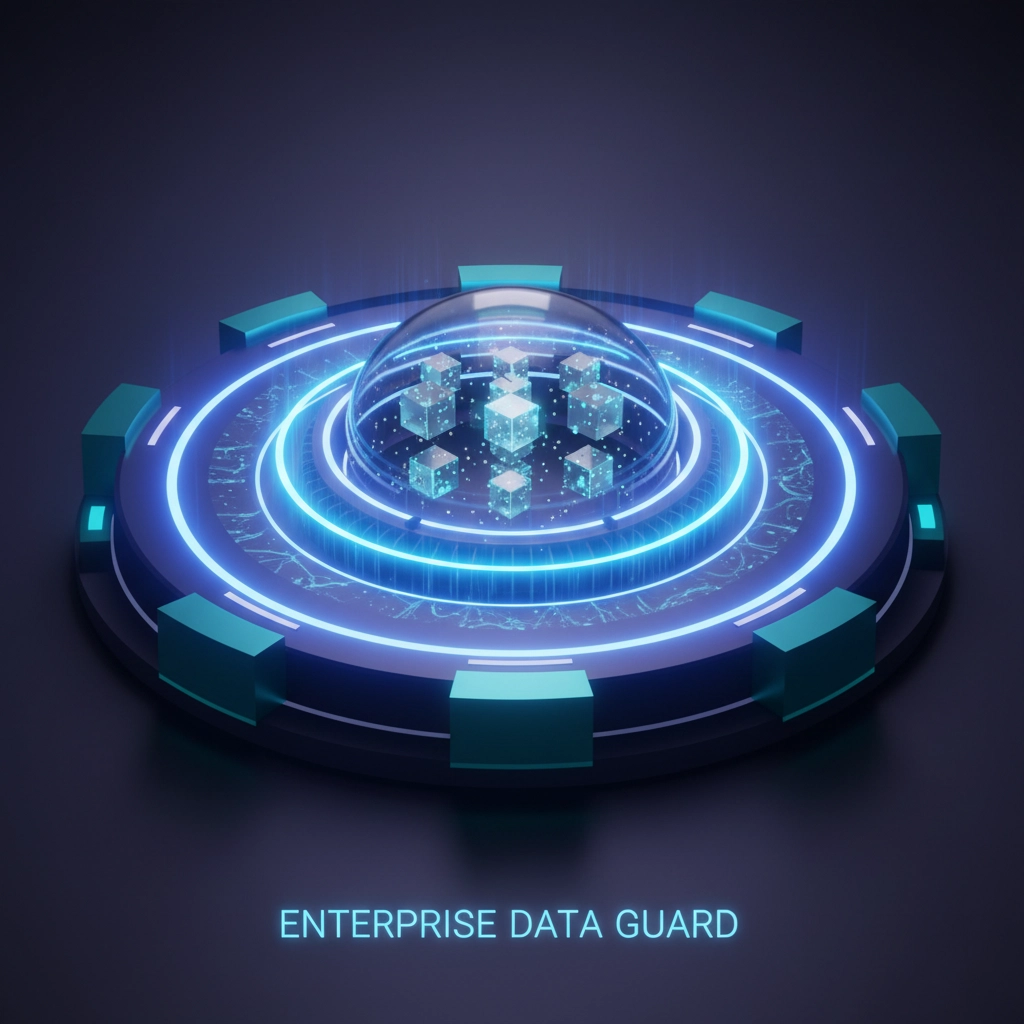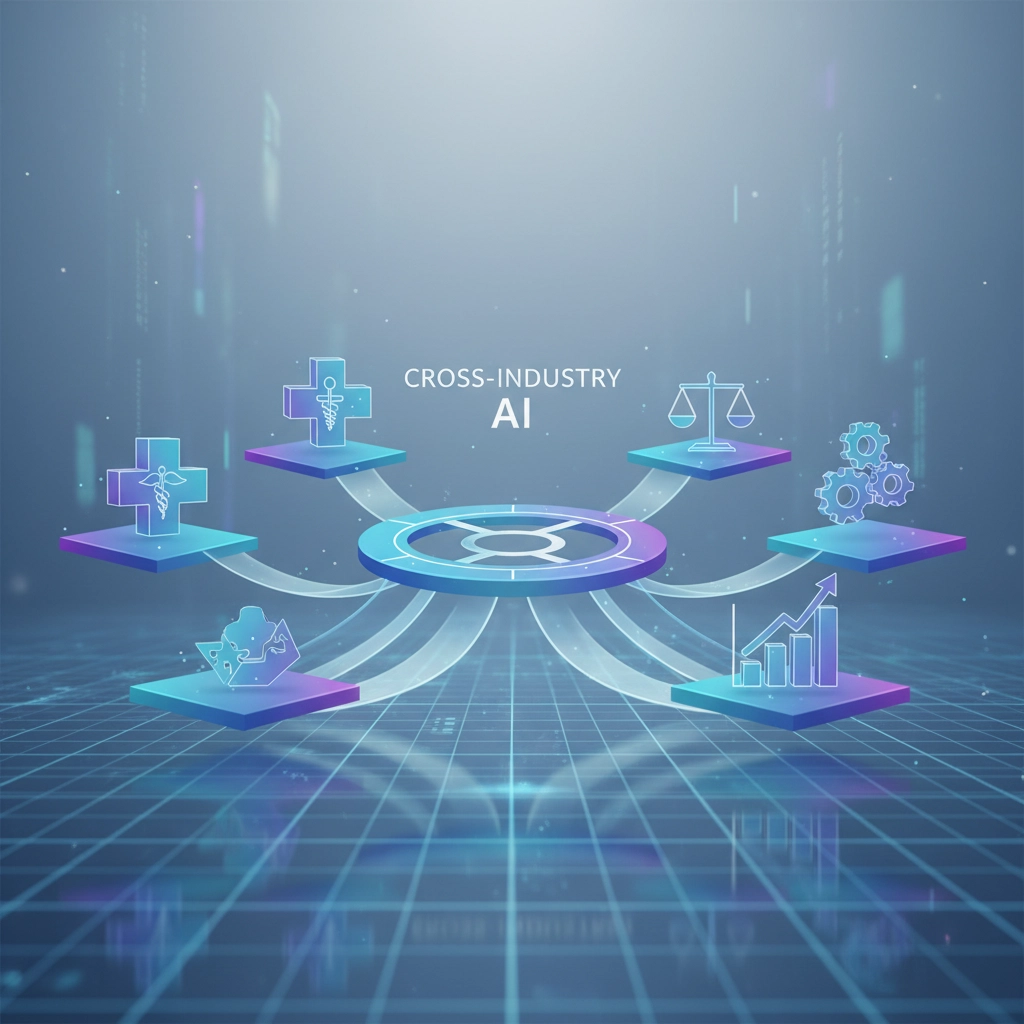
Here's the uncomfortable truth: 78% of enterprises are unknowingly exposing sensitive data when they use public AI tools for business operations. While your team thinks they're boosting productivity with ChatGPT or Claude, they're actually creating compliance nightmares and competitive vulnerabilities.
But there's a quiet revolution happening beneath the surface. Private AI chat solutions are reshaping how organizations leverage artificial intelligence: without sacrificing security, compliance, or control. These aren't experimental tools. They're enterprise-grade systems designed to work in production environments where data protection isn't optional.
What Exactly Are Private AI Chat Solutions?
Think of private AI chat as your organization's personal AI assistant that never leaves the building. Unlike public AI platforms that process your data on external servers, private AI chat solutions operate entirely within your secure environment: whether that's on-premises infrastructure or your private cloud.
When you ask questions about quarterly reports, customer databases, or proprietary research, the AI processes everything internally using your own compute resources. Your confidential information never touches third-party servers, never gets stored in external databases, and never contributes to someone else's AI training data.

The technology works by deploying large language models directly in your Virtual Private Cloud (VPC) or on-premises servers. These systems can ingest your business documents, databases, and knowledge repositories while maintaining complete data sovereignty. The result? You get intelligent, contextual answers about your specific business: with zero external data exposure.
The Critical Difference: Public vs. Private AI
Here's where most organizations get it wrong. They assume all AI tools operate the same way, but the differences are substantial:
Public AI platforms like ChatGPT, Claude, or Bard process your prompts on their servers, potentially store conversations for model improvements, and provide limited compliance controls. When your finance team uploads budget spreadsheets or your legal department reviews contracts, that data becomes part of an external system you can't fully control.
Private AI solutions flip this equation entirely. Processing happens within your security perimeter, using models trained on your specific data. Access controls mirror your existing organizational structure, and complete audit trails track every interaction for compliance purposes.
The numbers tell the story: Organizations using private AI report 61% faster adoption rates across teams because employees actually trust the system. There's no hesitation about uploading sensitive documents or discussing confidential strategies when everything stays internal.
Security Features That Actually Matter
Let's get specific about what separates enterprise-grade private AI from basic chatbots:
Bank-Level Encryption: Data encryption in transit and at rest using AES-256 standards. Your conversations with AI receive the same protection as financial transactions.
Granular Access Controls: Integration with Active Directory, SAML, and other identity providers ensures employees only access information they're authorized to see. Marketing can't accidentally query HR salary data.
AI Firewalls: Real-time content filtering prevents sensitive information like Social Security numbers, credit card data, or proprietary formulas from being processed inappropriately.
Complete Audit Logs: Every query, response, and data access gets logged with timestamps, user identification, and source citations for compliance reporting.
Air-Gapped Deployment Options: For highly regulated industries, private AI can operate completely disconnected from external networks.

These features address the core vulnerability that keeps CISOs awake at night: uncontrolled data exposure through well-intentioned productivity tools.
The Business Case for Private AI Implementation
Beyond security, private AI delivers measurable business advantages that public tools simply can't match:
Contextual Business Intelligence: Instead of generic responses, you get answers grounded in your specific industry terminology, processes, and historical data. When someone asks about "Q3 performance," the AI understands your fiscal calendar, product lines, and relevant metrics.
Faster Decision-Making: Complex queries that previously required days of research now get answered in minutes. Leadership teams can explore scenarios, analyze trends, and validate strategies using comprehensive organizational knowledge.
Reduced Compliance Overhead: Built-in audit trails and access controls simplify regulatory reporting for GDPR, HIPAA, SOX, and industry-specific requirements.
Competitive Intelligence Protection: Your strategic discussions, market analysis, and proprietary methodologies stay internal, eliminating the risk of inadvertent disclosure to competitors using the same public AI platforms.
Organizations implementing private AI typically see 50% reduction in time-to-insight for complex business questions, along with dramatically improved employee confidence in AI adoption.

Real-World Implementation Considerations
Rolling out private AI isn't just a technology decision: it's a strategic initiative that touches every aspect of your organization. Here's what successful implementations look like:
Start with High-Value, Low-Risk Use Cases: Document search, internal FAQ systems, and policy guidance provide immediate value while building organizational confidence.
Infrastructure Requirements: Private AI needs significant compute resources, particularly GPU capacity for model inference. Cloud deployments typically cost $10,000-50,000 monthly depending on scale and model complexity.
Data Preparation: Your AI is only as good as the data it can access. Most organizations need 3-6 months of data cleanup and integration work before deployment.
Change Management: Success depends more on user adoption than technical implementation. Training programs and clear usage guidelines are essential.
The most effective approach? Partner with specialists who understand both AI technology and enterprise security requirements. At Humming Agent AI, we've seen organizations achieve remarkable results when private AI implementation aligns with broader digital transformation strategies.
Industry-Specific Applications
Different sectors leverage private AI in unique ways:
Financial Services: Risk analysis, regulatory reporting, and customer service automation while maintaining strict data governance requirements.
Healthcare: Medical research analysis, patient data insights, and clinical decision support without HIPAA violations.
Legal: Contract analysis, case law research, and document review with complete client confidentiality.
Manufacturing: Supply chain optimization, quality control analysis, and operational intelligence using proprietary processes.
Government: Policy analysis, citizen service automation, and inter-agency collaboration with classified data protection.

Each industry brings specific compliance requirements, security standards, and operational constraints that private AI can accommodate through customized deployment architectures.
Looking Ahead: The Future of Private AI
The trajectory is clear: Private AI will become the standard for enterprise deployment, not the exception. Current trends point toward increased regulatory pressure on data handling, growing sophistication in cyber threats, and expanding AI capabilities that make internal deployment more practical.
Emerging developments include:
- Smaller, more efficient models that require less computational infrastructure
- Better integration capabilities with existing enterprise software stacks
- Industry-specific AI models pre-trained for sector-specific terminology and processes
- Hybrid deployment options balancing security with scalability
Organizations that establish private AI capabilities now position themselves for sustained competitive advantage. Those that delay face increasing risks from data exposure, compliance violations, and missed efficiency opportunities.
Making the Decision
Private AI chat solutions represent more than technology upgrade: they're a fundamental shift toward data sovereignty in the AI era. Your organization's intellectual property, customer information, and strategic insights deserve the same protection level as your financial assets.
The question isn't whether your business needs AI capabilities. It's whether you'll maintain control over your most valuable asset: your data.
Ready to explore how private AI can transform your organization while keeping your data secure? Let's discuss your specific requirements and explore what's possible when AI innovation meets enterprise security standards.
The future belongs to organizations that can leverage AI power without compromising data integrity. That future starts with private AI chat solutions designed for your success.
Ready to implement private AI chat for your organization?
Schedule Your Free ConsultationFrequently Asked Questions
How much does private AI chat implementation cost?
Investment in private AI varies based on several factors: deployment model (cloud vs. on-premises), number of users, data volume, integration complexity, and your specific security requirements. We've seen organizations of all sizes successfully implement private AI—from mid-sized companies to large enterprises. The key is finding the right solution for your needs and budget. Contact us for a custom assessment and we'll provide transparent pricing based on your specific requirements. Most organizations achieve ROI within 12-18 months through productivity gains and risk reduction.
What's the implementation timeline for private AI?
Most private AI implementations take 3-6 months from planning to full deployment. This includes 4-6 weeks for infrastructure setup, 8-12 weeks for data integration and model training, and 4-6 weeks for pilot testing and rollout. Organizations with complex compliance requirements may need 9-12 months.
Can private AI integrate with our existing systems?
Yes, private AI solutions are designed for seamless integration with enterprise systems including Microsoft 365, Salesforce, SAP, ServiceNow, and custom databases. Integration typically uses secure APIs, webhooks, and direct database connections while maintaining your security policies.
How does private AI handle regulatory compliance?
Private AI solutions include built-in compliance features for GDPR, HIPAA, SOX, and industry-specific regulations. Complete audit logs track all interactions, role-based access controls prevent unauthorized data access, and data residency options ensure information stays within required geographic boundaries.
What infrastructure is needed for private AI deployment?
Private AI requires compute resources with GPU capabilities for optimal performance. Cloud deployments need Virtual Private Cloud (VPC) setup with appropriate security configurations. On-premises deployments typically require dedicated servers with 128GB+ RAM, multiple GPUs, and high-speed storage. Network bandwidth of 1Gbps+ is recommended.
How does private AI compare to public AI in terms of accuracy?
Private AI often achieves higher accuracy for organization-specific queries because models are trained on your data and terminology. While public AI excels at general knowledge, private AI provides superior performance for industry jargon, internal processes, and company-specific information. Typical accuracy improvements range from 15-40% for specialized queries.
What ongoing support is required for private AI?
Private AI systems need regular model updates (monthly or quarterly), continuous monitoring for performance and security, and periodic retraining as new data becomes available. Most organizations dedicate 1-2 FTEs for AI operations or partner with specialized providers like Humming Agent AI for ongoing management and optimization.
Can we start small and scale up private AI deployment?
Absolutely. Most successful implementations start with a pilot program covering 50-100 users or a single department. This allows you to demonstrate value, refine processes, and build organizational confidence before expanding enterprise-wide. Phased rollouts typically take 6-18 months to reach full deployment.
Ready to Transform Your Business?
See how AI automation can revolutionize your operations and save 66% on costs.
Related Articles

Why We Quit SaaS: How We Built Our Own Tech Stack in 2 Weeks (and Saved $1,250/mo)
Last month, our SaaS bill hit $1,850. Two weeks later, we cut it by 67%. Not by negotiating—by building. Here's exactly how.

How Much Does AI Automation Cost? Complete 2026 Pricing Guide
AI automation costs $200-$50,000+ monthly depending on complexity. Get exact pricing for voice agents, chatbots, workflow automation, and private ChatGPT—plus ROI calculators.

7 Business Automation Mistakes & How to Fix Them
Business process automation sounds great—less busywork, faster answers, happier teams. But 70% of initiatives fail according to McKinsey. Here are the common mistakes and how to fix them.
